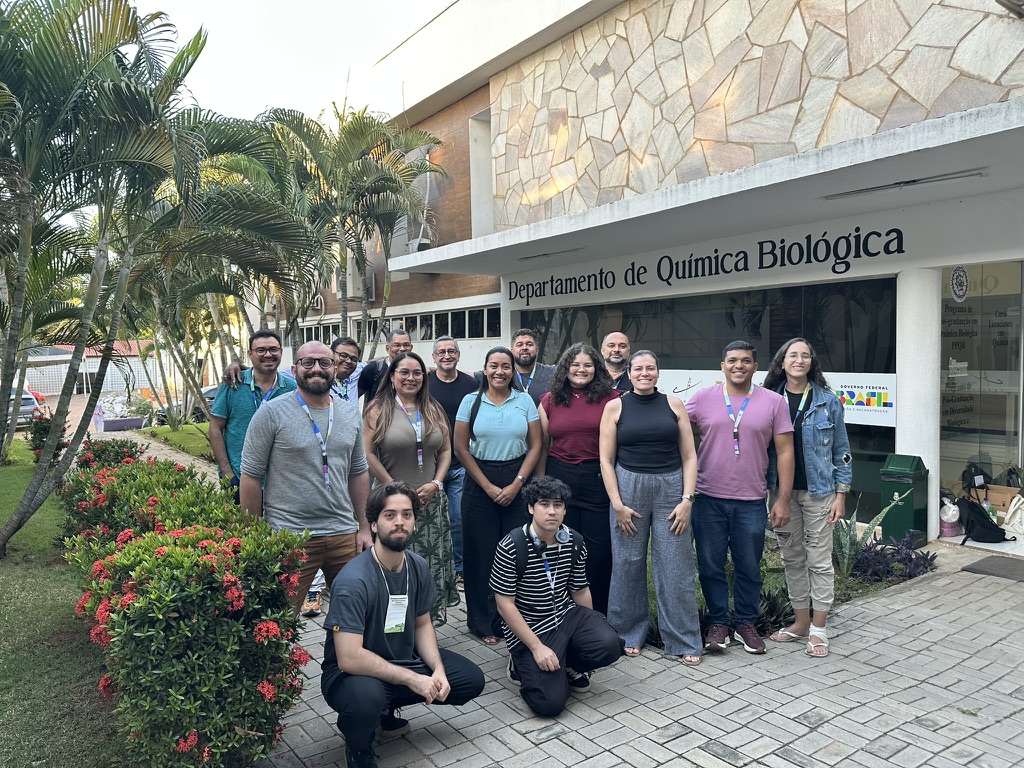Fiocruz holds scientific event in Ceará and suggests new edition
The II Workshop on Drug Development in Infectious Diseases and the I Introductory Course on Molecular Dynamics Applied to Pharmacology brought together 70 and 15 participants respectively in late May in Crato, Ceará. The event was part of the initiatives to strengthen research in areas such as bioinformatics, promoted by The Global Health Network Latin America and the Caribbean and Fiocruz (TGHN LAC/Fiocruz).
Organised in partnership with Fiocruz Ceará, the initiative was supported by the Scientific Computing Program (PROCC), under the Vice-Presidency of Education, Information and Communication (VPEIC), and included the distribution of books provided by Editora Fiocruz as awards for scientific presentations. Representatives from Fiocruz Rondônia, the Federal University of Pará (UFPA), the Regional University of Cariri (URCA), and the Federal University of Cariri (UFCA) also participated in the initiative. Internationally, participants from the Universidad Nacional de Asunción (UNA), Paraguay, and the Universidad del Valle (Univalle), Colombia, attended.
According to the Co-PI of TGHN LAC/Fiocruz and Professor of the course, Ernesto Caffarena, both interiorisation and internationalisation were key features of this edition. “Events like this drive scientific activities in strategic regions such as Cariri,” he said.
The coordinator of the workshop and regional collaborator of TGHN LAC/Fiocruz, Jaime Ribeiro-Filho, highlighted the role of institutional coordination. “Integration with inland research centres fosters the development of drugs based on medicinal plants and local knowledge,” he explained.
Computational methods were also a highlight of the programme. The Researcher from Fiocruz Rondônia, Fernando Zanchi, emphasised their importance for research in the field: “Molecular dynamics is an important in silico screening tool and should be guided by well-defined biological hypotheses to optimise time and resources in research,” he stated.
Representing Univalle, from Colombia, the speaker Diana Cruz, also addressed the role of technological tools in responding to infections. “Tools such as sequencing and bioinformatics have been essential for accelerating responses to infectious diseases in a fast, accessible, and globally impactful way,” she said. She also highlighted the parallels between the strategies used in Colombia and the practices of Fiocruz.
The researcher from UNA, Juliana González, drew attention to remaining gaps in the region. “There are still major gaps in research on the relationship between mycotoxins, immunity, and human health. It is necessary to increase surveillance and funding for this area throughout Latin America,” she warned.
The combination of dissemination and training strategies, such as the workshop and course, was well received by the local scientific community. One of the outcomes was a proposal to replicate the experience in new locations, such as a city between Ceará and Pernambuco, strengthening the network among Fiocruz units in the Northeast. The proposal reinforces Fiocruz’s role in the decentralisation of science, aligned with TGHN LAC’s approach to strengthening South–South cooperation.

